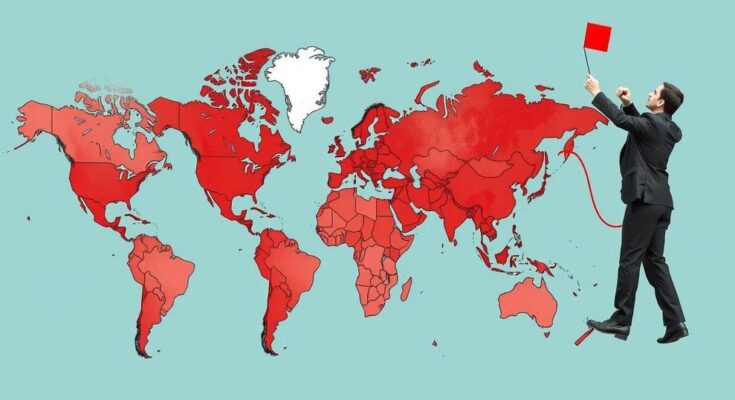In 2024, global elections revealed widespread voter dissatisfaction, leading to significant losses for incumbents across 70 countries. High inflation, post-pandemic challenges, and geopolitical instability drove voters to reshape their political landscape, often favoring fringe or far-right candidates. Notably, incidents of electoral fraud and mass protests highlighted an increasingly turbulent democratic environment.
In 2024, a wave of electoral shifts engulfed numerous nations, compelling incumbents to face significant backlash from voters. Mass discontent due to economic turmoil and dissatisfaction with the status quo resulted in upheavals in countries including India, the United States, Japan, France, and Britain. With 70 nations conducting elections, the resultant political landscape displayed a pronounced aversion to long-standing incumbents, leading to the ascendency of fringe and far-right political entities. Additionally, amidst a backdrop of alleged authoritarianism and interference, nations experienced heightened protests and governmental instability, with significant repercussions felt globally.
The year 2024 marked a notable period in global elections, as many voters expressed their dissatisfaction through decisive electoral actions. High inflation, the lingering effects of the COVID-19 pandemic, and geopolitical instabilities contributed to a widespread sentiment of frustration. The consequent voter backlash manifested in various countries, leading to losses for long-serving political parties and encouraging the rise of alternative political movements, including those on the far-right. This tumultuous political environment prompts ongoing discussions about the future of democracies worldwide.
The electoral outcomes in 2024 signal a pronounced shift in the global political landscape, characterized by an anti-incumbent sentiment and a growing embrace of outsider candidates. With significant changes in leadership and increasing volatility in several nations, the future of democracy remains uncertain. Continued scrutiny and analysis will be necessary as countries navigate the repercussions of these elections and the broader implications for democratic governance.
Original Source: www.clickorlando.com




